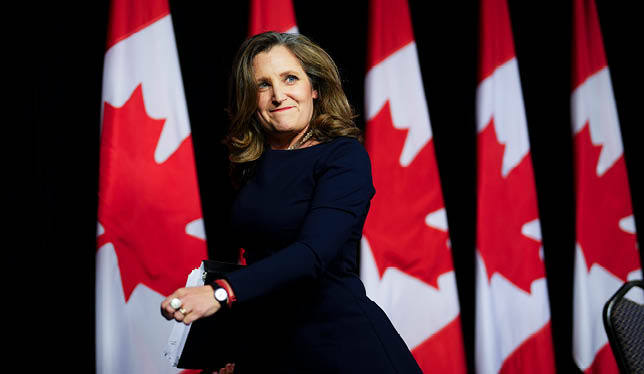We need to congratulate government investments in science

In Canada, the phrases “Science is back” and “Canada is back on the world stage” have been heard repeatedly over the last several months. They are like music to the ears of many of us. We can also now talk about, write about and apply for research funding on climate change without having to camouflage it – or worse yet, cut it out of our proposals.
The change from a year ago is so profound that some days it feels almost blinding, as if one were walking outside into the sunshine after years of being in a darkened room. Attending the American Academy for the Advancement of Science meeting in Washington, D.C. this past winter, I overheard on four different occasions American women academics say to each other: “Do you know that they actually have a minister of science and that she is a woman and that she is actually here.” Our times have changed. Will they change again? Yes, certainly, they will.
Some international colleagues asked me recently whether Canada still had economic problems. They were struck by the news of the reinvestment in science and wondered how that could happen in difficult times. My reply was that it was all a matter of priorities where governments put their money, but at the same time I quietly wondered about how to mitigate expectations. What should we expect as we move forward in time and how should we prepare for it?
In 2009, I was visiting with the minister of science and technology on the day after the first federal budget was announced, following the economic crisis of 2008. The government provided the Knowledge Infrastructure Program for universities but very little new money for research. On the front page of the Globe and Mail that day was a picture of a researcher who was expressing anger about the budget. The reaction of the minister while I was in his office was that if this was how professors responded to an investment in universities, maybe the government should invest elsewhere.
This has been running through my mind as we feel the good fortune of both investments in research and in infrastructure at our universities. It has also reminded me that it is not usually considered the best practice to bite the hand that feeds you. It is time to congratulate our government on the vote of confidence they have shown us and to do it over and over. If things go askew in the future, it is still time to congratulate whatever investments do occur while continuing to make the case for science and by delivering our ultimate message by how we vote.
Last month, I was invited to speak at a jointly sponsored meeting in Brazil by Universities Canada and FAUBAI, the Brazilian Association for International Education. It was a meeting to discuss lessons learned from Brazil’s Science without Borders program. Hailed as dramatic and visionary at its inception in 2011, the program is now winding down. Its goal was to strengthen and expand that country’s initiatives in science, technology, innovation and competitiveness by funding the international mobility of 101,000 students and researchers in the STEM disciplines over a five-year period. Brazil, with its thriving economy, was making a decided move onto the world’s science stage.
Canada, like many other countries, became very engaged in this program. Our Governor General led a delegation of some 40 university presidents to Brazil in the spring of 2012. Our campuses began organizing Brazilian Portuguese courses so Canadian students could reciprocate and go to Brazil.
Did Science without Borders work perfectly? No, but a great deal was learned in the course of this bold venture. Brazilians are now recognizing the need for better language training in their educational system. Canadians discovered only relatively few students had the temerity to go to Brazil and the original goal of scientific advancement remained relatively untapped since the majority of students were undergraduates who spent a lot of their time in language courses.
More strikingly, the Brazilian economy today is not what it was in 2011. The funding for Science without Borders has dried up and the present government is in profound disarray. I felt a sense of nostalgia at the meetings I attended. What had once seemed like such a great initiative and held such hope for international scientific advances was ending. For sure, the Science without Borders program will leave its traces; some may be recognizable for years. But times have changed and expectations had been curtailed. They will change yet again and now is the time to begin to craft new plans for that future.
Featured Jobs
- Canada Excellence Research Chair in Computational Social Science, AI, and Democracy (Associate or Full Professor)McGill University
- Business – Lecturer or Assistant Professor, 2-year term (Strategic Management) McMaster University
- Veterinary Medicine - Faculty Position (Large Animal Internal Medicine) University of Saskatchewan
- Psychology - Assistant Professor (Speech-Language Pathology)University of Victoria













Post a comment
University Affairs moderates all comments according to the following guidelines. If approved, comments generally appear within one business day. We may republish particularly insightful remarks in our print edition or elsewhere.